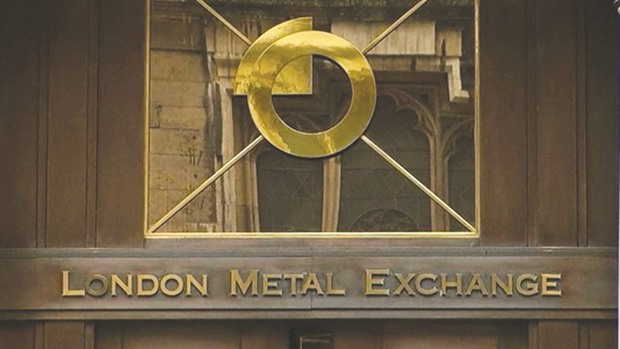Some four years after shelling out a top-of-the-market $2.2bn for the London Metal Exchange (LME), it appears owners Hong Kong Exchanges and Clearing (HKEx) are still battling to make the venerable old Western institution work with China, the new and dominant centre for metal demand.
HKEx Chief Executive Charles Li used the LME Week Asia seminar yesterday to tout the latest plan, which involves bringing the LME’s expertise in physical metals markets to China, where financial instruments dominate trade.
As Li Outlined, the LME is still overwhelmingly dominated by physical players, producers, traders and buyers, who use the exchange not only as a method of price discovery but also as a regulated supply chain management system.
It may not be a perfect system, but it is widely understood and trusted by the various participants in the metals market.
China, on the other hand, is home to what many, Li included, have characterised as commodity casinos, where exchanges have huge volumes of contracts traded, tiny open interest and virtually zero physical settlement.
At the LME Week Asia this time in 2013, Li outlined a vision of using the LME as a basis for launching new contracts in Hong Kong, aimed largely at the China market.
These were yuan-denominated, cash settled contracts that used the LME’s price discovery method to ensure transparency and tradability.
It was basically a vision of getting a slice of action in the world’s biggest producer and consumer of commodities, and of bringing together the hitherto separate worlds of Western and Eastern commodity trading.
It’s probably still too early to say this hasn’t worked, but it’s probably also fair to say the HKEx would be far happier if it had been more successful.
So what Li is now talking about appears to be a new strategy, namely one of trying to replicate, to some degree, the LME’s physical trading system inside China.
HKEx plans to develop an industrial user base in southern China at Qianhai, a new free trade area near Hong Kong.
The plan is to use this as platform for trading metals, to service the real users rather than the small financial investors that currently dominate China’s domestic commodity exchanges.
In other words, HKEx now wants to bring the LME’s expertise in warehousing, logistics and physical trade to a market where the current situation is fragmented and not integrated.
Li’s basic message is that the needs of the physical market in China aren’t being well served, and the LME has the ability and market trust to rectify the situation.
Of course, there are numerous challenges to rolling out an LME-style system inside China, the first and most obvious one is to get sufficient warehouses that people trust.
Credit financing, regulatory hurdles, how to handle China’s value-added tax on transactions also loom as issues that need to be sorted out, and all of these have to happen prior to the final obstacle of building sufficient liquidity.
But it does seem like a strategy that has potential for success. If HKEx’s first stab at cracking the China market was basically trying to get China to trade LME products tailored for them, this new plan can be seen as trying to put the LME in China’s backyard.
The basic strategy appears to be that if they (the Chinese) won’t come to us, no worries, we’ll go to them.
Li is also keen for the LME to attract more participants, and by that he means financial players rather than the traditional physical players. The view is that the LME has to change and evolve, not only to remain relevant but alo to provide a return on what was a pricey acquisition.
Changing the dynamics of trading on the LME is unlikely to meet the unanimous approval of the existing, well-established participants. Several traders expressed unhappiness about the LME in conversations around the LME Week Asia, and not only about the increase in fees.
But when the old owners of the LME, predominantly the exchanges users, took HKEx’s money in 2012, they would have been extremely naive if they thought the Hong Kong company wouldn’t make changes aimed at maximising its return.
HKEx’s Li made the point repeatedly in his address today that he doesn’t want to “change the DNA” of the LME, in fact he used the phrase so often I lost count.
What Li is trying to do is a juggling act, he has to keep the old guard onside while expanding the LME to new participants, and at the same time work an effective strategy of getting a slice of the China metals action.
Clyde Russell is Reuters analyst. The views expressed are those of the author.

Some four years after shelling out a top-of-the-market $2.2bn for the London Metal Exchange, it appears owners Hong Kong Exchanges and Clearing are still battling to make the venerable old Western institution work with China, the new and dominant centre for metal demand
